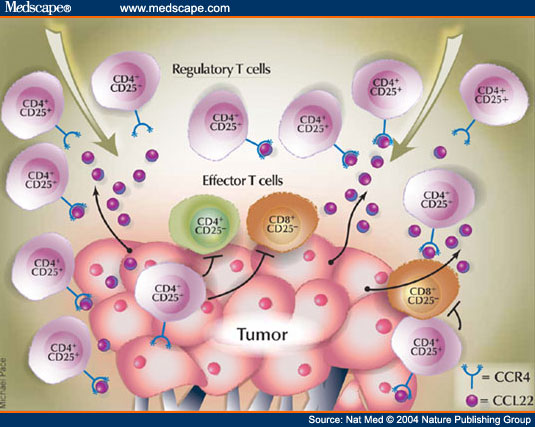Tumor Infiltrating Lymphocytes (TILs) are cytotoxic T-cells that are found in tumors. They serve to destroy cancer, or at least keep cancer at bay. Adoptive immunotherapy, in which TILs are isolated from patients’ tumors, expanded ex vivo via incubation with IL-2, and re-infused autologously, has shown an objective regression rate of 72% in multiple clinical trials of metastatic malignant melanoma (see http://clincancerres.aacrjournals.org/content/20/13/3401.abstract?sf27992416=1 and http://www.sciencedirect.com/science/article/pii/S0022175987800182).
Determining the precise cancer antigens to which the TILs are reactive has been elusive. Two patients (2359 and 2591) had complete regression of melanoma metastases in excess of 5 years with TIL therapy. By screening tandem mini-gene libraries, identification of mutated kinesin family member 2C (KIF2C) antigen as a target of TIL 2359, and mutated DNA polymerase alpha subunit B (POLA2) antigen as a target of TIL 2591. Both KIF2C and POLA2 have been found to play important roles in cell proliferation.
The authors concluded that using the minigene library method could facilitate the antigen repertoire analysis of tumor reactive T cells, and lead to the development of new adoptive cell therapies with purified T cells that recognize candidate-mutated antigens derived from genes essential for the carcinogenesis.
Treg (CD4+/CD25+) cells blunt the antitumor activity of CD8+ TILs (cytotoxic T-cells)s. Increased numbers of tumor infiltrating Treg cells correlate with poor survival. Even in the presence of CD8+ TILs , the presence of a few Treg cells in the tumor serves to neutralize the immune attack. (See http://www.jci.org/articles/view/39608 – Antigen-specific Tregs control T cell responses against a limited repertoire of tumor antigens in patients with colorectal carcinoma).
I think this is very exciting because it could lead to the isolation and expansion of TILs that are not held in check by Treg cells, thereby improving the efficiency and potency of adoptive immunotherapy and of cancer vaccines.


